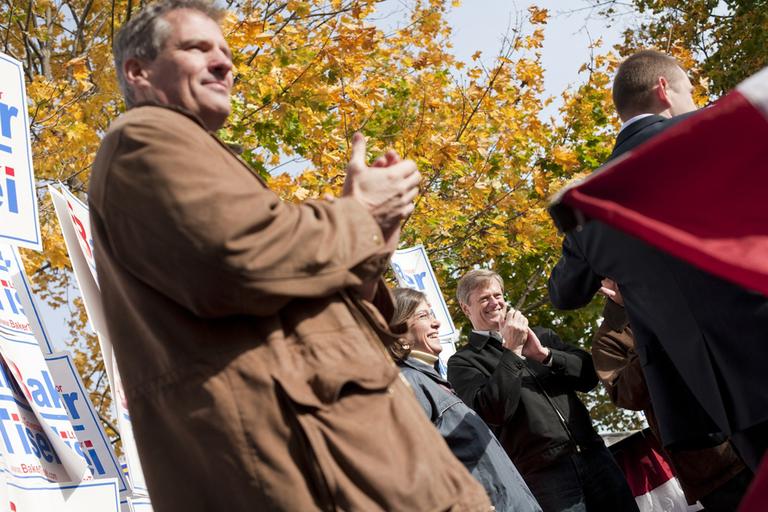Advertisement
Is The 'Scott Brown Effect' Fading?
Resume
BOSTON-- Sen. Scott Brown used his clout in Massachusetts to stump for Republican candidates this election season — everyone from Charlie Baker for governor to Mary Z. Connaugton for auditor. He endorsed Jeff Perry early on in the campaign, too.
"The people of Massachusetts' 10th Congressional District sent a message to Washington in supporting me and my bid for U.S. Senate," Brown said. "Now you have another chance to shake up the status quo by electing Jeff Perry as your next United States representative."
But in the end, voters rejected Brown’s suggestion to shake up the status quo. Every Republican candidate for Congress and those running for statewide office lost. The GOP did pick up seats in the House on Beacon Hill, but lost one in the Senate. Still, the chair of the state's Republican Party, Jennifer Nassour, doesn’t see the races as a total defeat.
"The tremendous showing that we saw in those congressional races where these unknown people had really good races against entrenched Democrats showed the power of Scott Brown, the power of who he is, and the power of the party and that Massachusetts isn’t as blue as everyone would like to believe it is," she said.
In the end, voters rejected Brown’s suggestion to shake up the status quo.
Brown's win also energized Republicans in other states. Many asked him to campaign for them in this election. But in an analysis of 13 races around the country where Brown stumped, only five of the candidates he supported won.
And for some supporters who had felt the Brown wave of optimism, the post-election fall is hard.
"For me, I’m ready to move to Austin, Texas. I’m serious," said Republican Lenny Demers, of Douglas, the town that gave Brown one of his largest margins of victory in the state. This election, Demers volunteered for Republican Tom Wesley’s campaign in the 2nd Congressional District. Wesley lost by 16 percent to 22-year incumbent Democrat Rep. Richard Neal. Demers was shocked.
"'Cause I really thought Scott Brown’s election, we would mirror that to some extent, not exactly, but to some extent and we didn’t," Demers said. "And as I was talking to my wife about it I think the linchpin about that is that Sen. Brown is 41 — we can stop the health care bill."
So, he believes, without a motivating issue like health care, Republican candidates in Massachusetts didn't do well.
Brown’s upset win in January over Democrat Martha Coakley set Republicans buzzing about a changing electorate in Massachusetts. But Coakley says her loss motivated the party.
"I think all Democrats, including me, saw what happened in January and vowed that it wouldn’t happen again," Coakley said. "We all got out to work."
So did Republicans, says Nassour. She says the party fielded good candidates and that wouldn’t have happened without Brown as an inspiration.
"We saw great candidates in Jon Golnick and Sean Bielat, for example, but they were never elected to office before. So I think that this is a fantastic showing by the two of them in their races, being 10-12 (points) behind entrenched incumbents, and if you look at Jeff Perry’s race, he was within five points of Bill Keating."
"When you lose, you spin, when you win, you look at facts," said Michael Goldman, a Democratic strategist for Government Insight Group.
"And the facts are this was the greatest year nationally for Republicans," Goldman said. "And not one single Republican won (here). If you can’t win in the greatest year of Republicans victories nationwide, how are you going to two years from now when Republicans are going to be on the defensive?"
That's also when Brown is going to be up for re-election.
More:
This program aired on November 4, 2010.